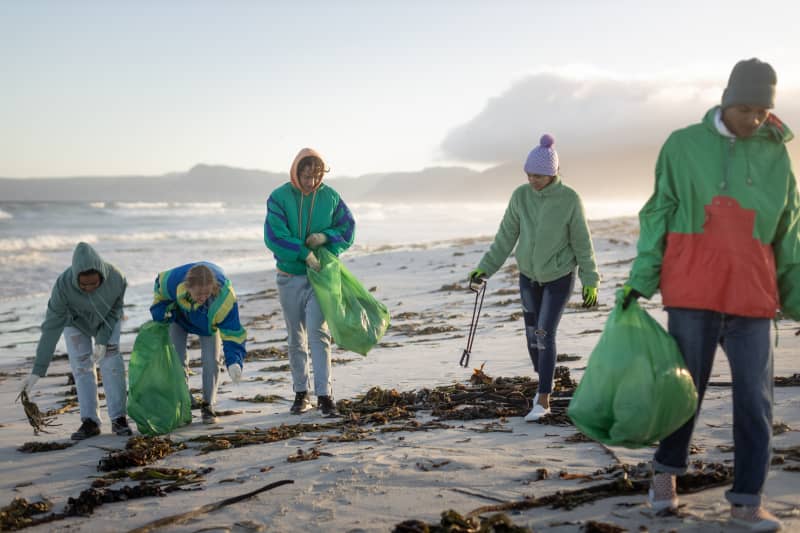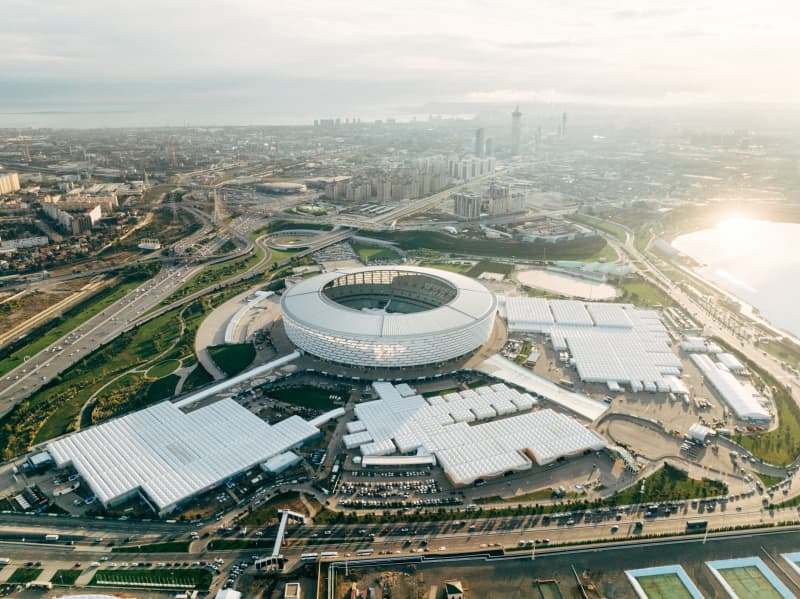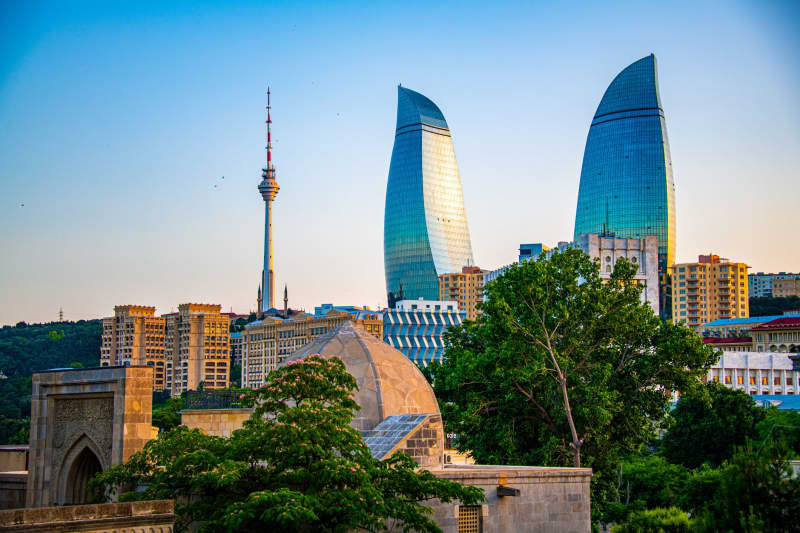Going further and faster on climate education
Going further and faster on climate education
As 2023 is confirmed as the hottest year on record, the need to go further and faster on climate action in 2024 intensifies. Education has a vital role to play.
Going further and faster on climate education
23 January 2024
By Katie Phoenix

As 2023 is confirmed as the hottest year on record, the need to go further and faster on climate action in 2024 intensifies. Education has a vital role to play.
Christine Özden, Global Director for Climate Education at Cambridge University Press & Assessment, urges more attention on climate education as key in tackling the climate crisis: “Government subsidies for fossil fuels are equivalent to more than seven percent of global economic output, while education investment is about four percent,” she says.

Christine Özden, Global Director for Climate Education
Christine Özden, Global Director for Climate Education
“Leaders have a choice: correct this lopsided prioritisation, or drift into what António Guterres, UN secretary general, describes as a “dangerous and unstable” climate disaster. It's not just about investment - critical as that is - but how we direct education spending that can make a difference.
“Climate education should be integrated into all stages of school curricula. It will help young people understand the climate crisis and its inter-connected nature, play a role in tackling it, and equip youth with the skills needed in changing economies. It’s up to governments to commit, collaborate and communicate on climate education. Dealing with climate change is a multi-generational endeavour. Climate education must be central to that,” Özden says.
“Leaders have a choice: correct this lopsided prioritisation, or drift into a 'dangerous and unstable' climate disaster”
COP28 reflections

Özden led and participated in three sessions at COP28 in December 2023, alongside other Cambridge and partner delegates. As we look ahead to a new year, she summarises her key questions from the climate change conference:
1. How do we make collaboration the most effective it can be?
“There is really significant activity with individuals and organisations working together, but how do we join up? There is a need to look at partnerships and initiatives and focus on those with greatest impact.
“We must also remember the climate crisis is a global issue, but it requires local and contextualised thinking and solutions. A quote which really stuck with me was from a delegate who joined the panel session at the launch of the ActNowFilm, where youth leaders and world figures call for young people to be included in national climate negotiation teams and global decision-making. She said, ‘to be a global leader, you need to do something at a local level.’ Global collaboration and agreements don’t mean anything if there isn’t local action.”
ActNowFilm: youth climate leaders in conversation with climate experts is an international youth voices in climate change project, run by the University of Bath Institute for Policy Research (IPR) and Cambridge Zero, with support from the UK Universities Climate Network (UUCN) and in partnership with One Young World.
2. What does it really mean to empower young people?
“The inclusion of young people in tackling the climate crisis, especially in decision-making, is essential. It was interesting to hear at COP28 young people call out some feelings of tokenism and segregation, for example being referred to as ‘youth negotiator’ instead of just ‘negotiator’. Youth delegates asked older people to withhold their cynicism more to drive more ambitious action.”
3. How do we take ownership of the ideas and intentions of COP?
“The sheer volume of pledges made at COP28 is quite startling, something Sir Alok Sharma - previously UK Secretary of State for Business, Energy and Industrial Strategy and President for COP26 in 2021 - called "pledge inflation". There needs to be accountability for delivering these.”

Delegates talking at Cambridge University Press & Assessment workshop at COP28
Delegates talking at Cambridge University Press & Assessment workshop at COP28
4. How do we support behavioural change amidst cultural and social norms?
“At COP28 120 global leaders pledged to triple the world’s installed renewable energy capacity by 2030 to limit global temperature rise to 1.5°C. Technology enabled progress on energy capacity is extremely impressive. However, important culturally bound aspects of how we live are harder to change than say technology enabled aspects of our life. For example, one-third of all human-made greenhouse gas emissions are derived from the agrifood systems, yet food systems only joined the official COP agenda three years ago. At COP28, 153 parties signed a historic declaration for more climate-resilient food systems and sustainable food production, underscoring the importance of food in tackling the climate crisis.”
On the opening weekend of COP28, Cambridge University Press & Assessment’s Global Director of Climate Education, Christine Özden, led a workshop at the Greening Education Hub. The session brought together local and global partners to discuss how to embed and scale up climate literacy for learners in different contexts.
Making impact in 2024

Cambridge is committed to working through the reach of our products and services to bring climate education to more people around the world, to use convening and skills to gather expertise to benefit young people, and to influence key stakeholders to drive action to tackle the climate crisis.
Cambridge Climate Quest
In February, Cambridge University Press & Assessment, in partnership with Cambridge Zero, will launch the innovative educational initiative - Cambridge Climate Quest - to school leaders in India at the Cambridge Schools Conclave South Asia.
The Cambridge Climate Quest is a free comprehensive learning programme that provides learners with a foundational awareness of climate change issues and aims to foster climate action at the grassroots level, empowering individuals and communities for a sustainable future.
Arun Rajamani, Managing Director for South Asia, Cambridge University Press & Assessment, said: “A sustainable future begins with informed and empowered youth. Cambridge Climate Quest is part of our commitment to providing students across India the knowledge and tools they need to become active contributors to a greener world. With schools as our valued partners, we embark on an innovative journey, providing not just a product but a commitment to the growth and progression of each learner.”
Christine Özden said: "This new programme aims to empower young learners with foundational climate literacy and facilitate awareness and action. We're committed to making this programme accessible to schools and students across India.”

Embedding climate education in the curriculum
In 2023, Cambridge led an extensive collaboration with academics and education specialists in geography, climate and sustainability from across the University of Cambridge community. The discussion focussed on how to best consider climate-related research, knowledge, skills and pedagogies within the geography curriculum, and implications for geography assessments and qualifications for tens of thousands of students in the UK and around the world. This collaboration helped to shape the redevelopment of Cambridge International’s IGCSE, AS and A Level and O Level Geography syllabuses and supporting teaching and learning materials.
In March 2024, the topic of Engineering will become the focus of dialogue for the University community with researchers, academics, educators, curriculum and qualifications developers. The group will consider the role of Engineering in working towards a more sustainable future and the implications for school curricula, teaching and learning materials, assessments and qualifications.

Events in 2024
BETT 2024, 24 - 26 January
At BETT 2024 - the world's biggest EdTech event - on 24 – 26 January, Jane Mann, Managing Director, Partnership for Education, will lead a session on designing and scaling up two locally led education innovations: EdTech in Africa and Climate Literacy in India. Two leaders will share their journeys from ideas to action. A HP Cambridge Partnership for Education EdTech Fellow will share how technology is combating learning challenges in Sub-Saharan Africa. They will be joined by an expert behind the innovative Cambridge Climate Quest programme in India.
World Education Summit, 18 - 21 March
At the World Education Summit on 19 March, Christine Özden and Tim Oates, Director of Research at Cambridge University Press & Assessment, will be in conversation on practical considerations around including climate and sustainability into primary and secondary schooling nationally and internationally; the challenges of how long it takes to deliver change and the role of an exam board within this.
Cambridge Festival, 13 - 28 March
On Thursday 21 March at the Cambridge Festival organised by the University of Cambridge, Christine Ozden will lead a hybrid panel session where students and educators from across Cambridge will explore how to give learners the skills and knowledge they need to thrive. What is the current reality in schools? How can learners prepare for sustainable, clean tech jobs of the future in a rapidly shifting economy and society? They will discuss ideas and opportunities on preparing today’s learners for a sustainable future, from the different perspectives of educators, researchers and students. It will take place on Thursday 21 March, at the Zoology Museum, Cambridge, UK, at 18:00 – 19:30.
Festival of Education, 4-5 July
Cambridge University Press & Assessment is the sustainability partner again at the Festival of Education - one of the world’s most influential educational events - from 4-5 July 2024. Cambridge will be curating a two-day programme of sessions in the Sustainability Zone where we enable a wide range of environmental and sustainability education charities and organisations to exhibit free-of-charge.

Özden speaking at the Festival of Education 2023
Özden speaking at the Festival of Education 2023
More stories





